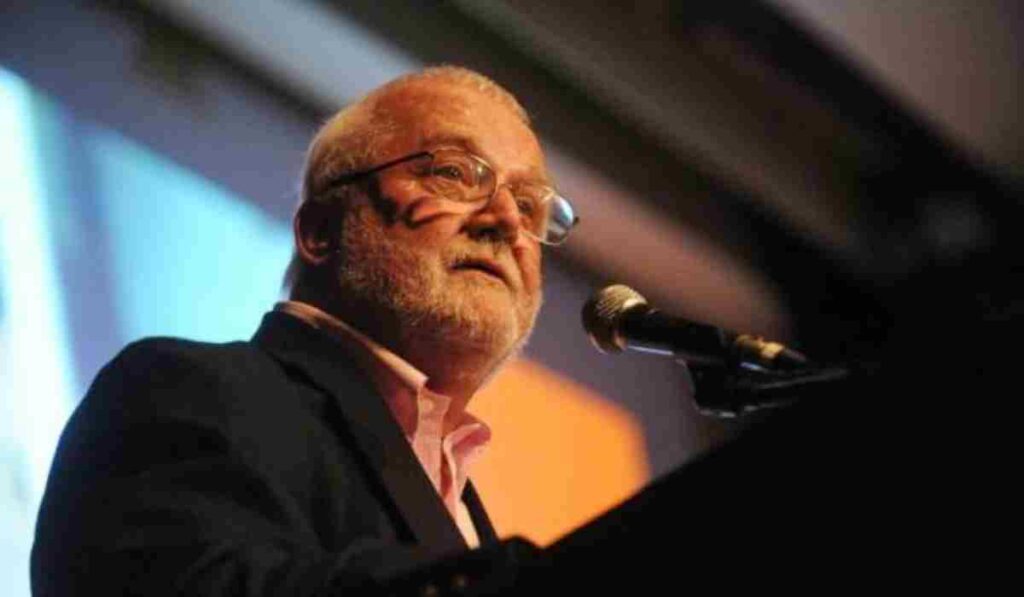‘Affliction ‘ author Russell Banks dies aged 82
Russell Banks, an award-winning fiction writer who rooted such novels as “Affliction” and “The Sweet Hereafter” in the wintry, rural communities of his native Northeast, imagined the dreams and downfalls of everyone from modern blue-collar workers to the radical abolitionist John Brown, has died. He was 82.
Banks, a professor emeritus at Princeton University, died Saturday in upstate New York, his editor, Dan Halpern, told The Associated Press. Banks was being treated for cancer, Halpern said. Joyce Carol Oates, who referred to Banks on Twitter as a great American writer and “beloved friend of so many,” said he died peacefully in his home.
“I loved Russell & loved his tremendous talent & magnanimous heart,” Oates said. “ ‘Cloudsplitter’ [was] his masterpiece, but all his work is exceptional.” Born in Newton, Massachusetts, and raised in Massachusetts and New Hampshire, Banks was a self-styled heir to such 19th-century writers as Nathaniel Hawthorne and Walt Whitman, aspiring to high art and a deep grasp of the country’s spirit.

He was a plumber’s son who often wrote about working-class families and those who died trying to break out, caught up in a “kind of madness” that the past can be erased, and those like himself who got away and survived and asked, “Why me, Lord?” Banks lived part of the year in Florida, and for a time had a home in Jamaica, but he was essentially a man of the North, with an old Puritan sense of consequences.
Snow fell often in his fiction, whether on the upstate New York community torn by a bus crash in “The Sweet Hereafter” or on the desperate, divorced New Hampshire policeman undone by his paranoid fantasies in “Affliction.”
In Banks’ critical breakthrough “Continental Drift,” published in 1985, oil burner repairman Bob Dubois flees from his native New Hampshire and goes into business with his wealthy brother in Florida, only to learn his brother’s life was as hollow as his own.
“His brother’s strut and brag were empty from the start, and in a deep, barely conscious way, Bob knew that all along and forgave him his strut and brag simply because he knew they were empty. But he had never believed it would come to this, to nothing,” Banks wrote. “Cloudsplitter” was his most ambitious novel, a 750-page narrative on John Brown and his improbable quest to rid the country of slavery.
The story long precedes Banks’ lifetime, but the inspiration was literally close to home. Banks lived near Brown’s burial ground in North Elba, New York, and he would pass by often enough that Brown “became a kind of ghostly presence,” the author told the AP in 1998. “Cloudsplitter” reads like a prequel to Banks’ contemporary works, a summoning of Hawthorne and other early influences.
As remembered by their son Owen Brown, John Brown was a haunted man of the Old World whose resolve to free the slaves and punish the enslavers made his face burn like a revivalist preacher’s. “I was a boy; I was frightened by my father’s face,” Banks’ narrator explains. “I remember father looking straight into our eyes, burning us with his gaze, as he told us to hear him now.
He had determined that he would henceforth put his sins of pride and vanity behind him. And he would go out from here and wage war on slavery. The time has come, he declared, and he wished to join the time in full cry.” Banks was a Pulitzer finalist for “Cloudsplitter” in 1999 and had been one 13 years earlier for “Continental Drift.”
His other honors included the Anisfeld-Book Award for “Cloudsplitter” and membership in the American Academy of Arts and Letters. Two of his books were adapted into acclaimed film releases in the late 1990s. “The Sweet Hereafter,” directed by Atom Egoyan and starring Ian Holm, and director Paul Schrader’s “Affliction,” which brought James Coburn an Academy Award for best-supporting actor.